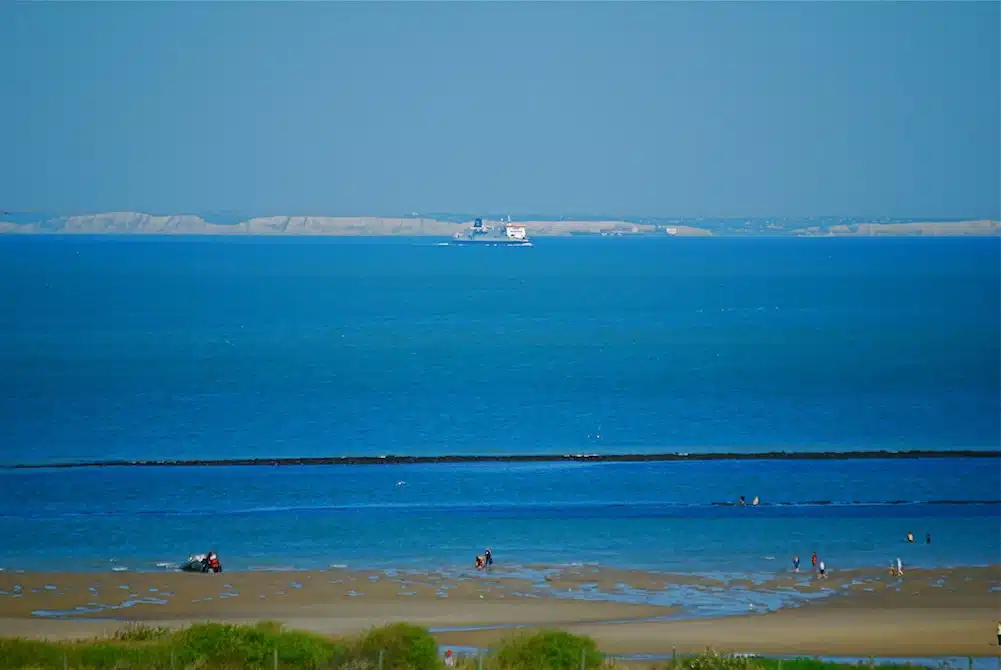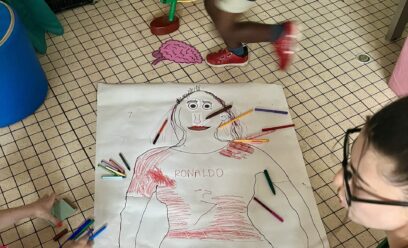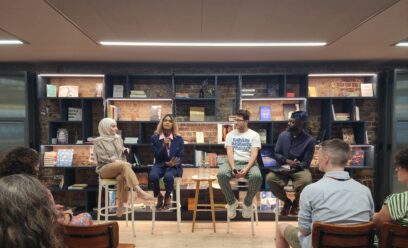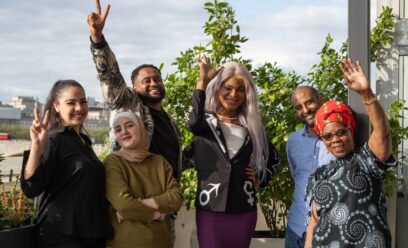Stories rooted in common humanity are needed in the wake of the latest Channel crossings tragedy
Posted by Katherine Maxwell-Rose on October 28, 2020Yesterday a story hit the news of four people from one family dying as their boat sank in the Channel including two young children with a further child still missing. A headline that many in our sector have been expecting and dreading for months as boats continue to cross this dangerous and congested shipping lane.
We are hugely saddened by this tragic loss of life. We stand in solidarity with the family, friends and all of those mourning this young family who have been lost at sea.
Currently little is known of those caught up in this tragedy with the media reporting they are believed to be from Iran and Iraq. It is all too easy to jump to conclusions. We are shocked by the headlines, the sense of loss and to try to fill in the gaps of what in reality we simply don’t know about this family.
Who they were, why they might have taken such a dangerous journey, what they were leaving behind, their motivations for getting on that boat in bad weather, their hopes and aspirations for the future. The fact is, like the media, we can only surmise.
However, based on our experience of the Channel crossings, what seems likely is they were hoping for a better life and that a series of huge challenges will have led them to the moment of getting onto that boat.
Faced with this tragedy, it can be hard to know how to respond. As compassionate advocates, how can we use our anger, grief and exasperation to make an actual difference? Storytelling and focused campaigning are two ways we can use our energies to change public perceptions and push the government to positive action. These stories must be authentic and grounded in facts. More than anything, these stories must be rooted in our common humanity. Stories create connections and increased empathy; looking into someone’s eyes, listening to their words has the power to break down barriers between people.
IMIX’s storytelling project, Human Journeys tells the stories of how people came to live in the UK and provides insights into the different reasons why people leave their home countries. While the reasons are varied and individual, a common thread is that each one believes a better life is possible elsewhere. It is never an easy decision. As David Carril described in his interview, it was a ‘tragic moment’ for him when he realised that following an economic crisis in Spain and a year of unemployment, he would have to leave his home. These stories are often full of determination, courage and hope; faith that in this new country, they will receive hospitality and welcome.
Stories of community welcome are often among the most powerful and heartening. The remarkable Taban Shoresh in her Human Journeys interview describes the small acts which made a difference to her as a young child settling into this country after escaping Saddam Hussain’s brutal regime in Iraq. There was the family who taught them English and invited them over for every Christmas: ‘There was also a boy in my school called Alex who would take the time to show me what the teacher was teaching everyone. I’ll never ever forget that.’
Last week a in touching article in the Ipswich Star, Tekle described his dramatic journey fleeing violence and war in Eritrea. A journey he was forced to take ‘to find peace to be free.’ He travelled alone through Sudan, Libya and Europe arriving in the UK with little English. In spite of this he achieved top grades in his GCSEs and has been awarded a full scholarship to study for his A-Levels at Ipswich College. Dressed in his suit, shirt and tie, and posing casually with a huge smile outside the grand buildings of Suffolk’s leading independent school, it is almost impossible to imagine the extraordinary and dangerous journey he has undertaken.
Surprising people by breaking stereotypical notions of what a ‘refugee’ or a ‘migrant’ is can help to remove a ‘victim’ narrative and change attitudes. Nour describes in Human Journeys how she used to be one of the only female cyclists in Damascus, Syria and now, in the UK, is a passionate cycling enthusiast: ‘I want to teach girls to believe in themselves and that nobody can stop them from pursuing their dreams’
Showing people in a different light, highlighting their potential, achievements and generosity towards their new country enables the audience to look at those who migrate in an entirely new way. The more stories which are told the bigger a picture is built up of people on the move – until preconceptions and generalisations become unviable.
Alongside this, it is crucial to petition the government for change particularly in areas which could see potential success. Safe Passage’s determination to ensure unaccompanied minors in Europe can continue to reunite with their families post-Brexit is inspiring. Refugee Action is today increasing their call for the government to restart the resettlement scheme which has been paused since March. Everything is in place for 600 people who are ready to come to the UK immediately. This looks like a hugely winnable campaign which will hopefully open up further discussions around the future expansion of refugee resettlement.
The argument for safe and legal routes must continue to be made but the specifics of this need to be worked out and messaging made clear. Reasoned voices presenting a viable, workable alternative to the current situation are necessary and important in moving the debate forwards.
As this news story continues to develop and as other tragedies sadly occur, we have a responsibility to respond with compassion, humanity and understanding. To remind people that each person making that crossing is a unique individual with their own story to tell, a human being with hopes for the future.




